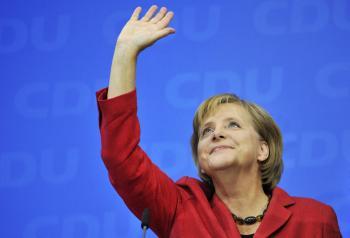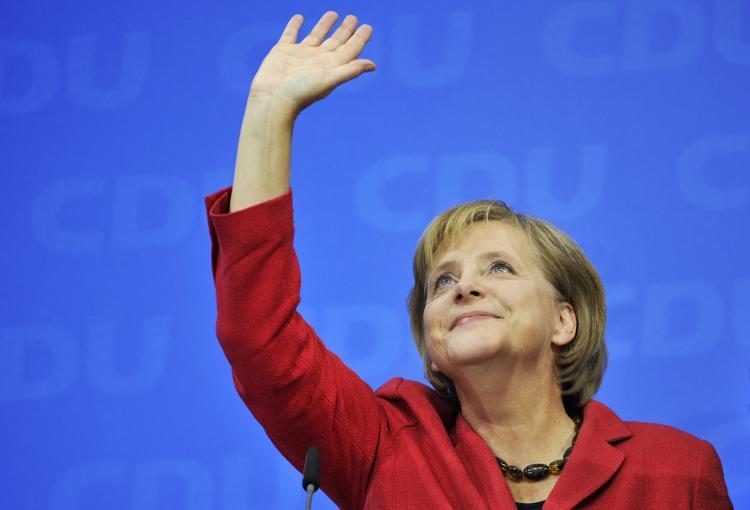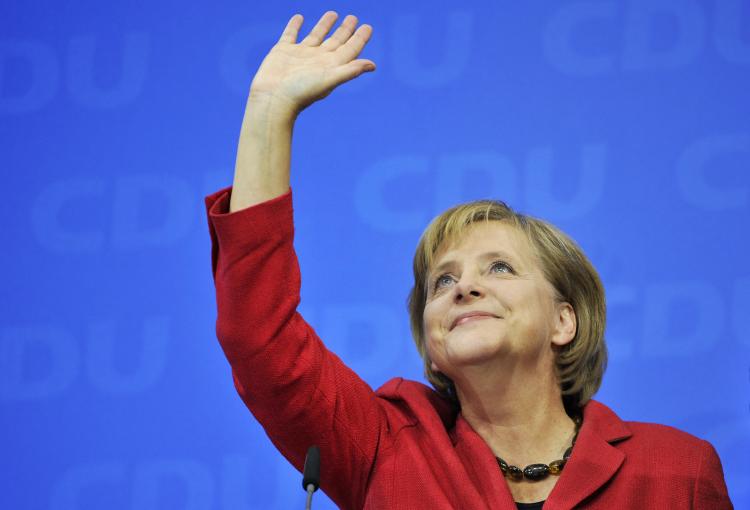Merkel Vows Economic Reforms in Second Mandate
German Chancellor Merkel vowed to bringing economic prosperity to the country after being re-elected.

German Chancellor and leader of the Christian Democratic Union (CDU) Angela Merkel waves during the election evening after parliamentary elections at the CDU headquarters in Berlin on last Sunday. Joerg Koch/AFP/Getty Images
|Updated:






